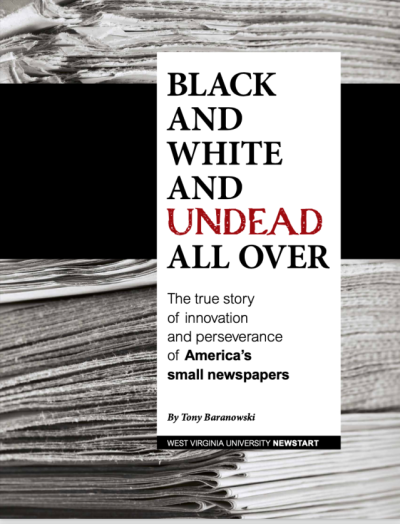 Like Axios Local, 6AM City is being described as a response to the decline of legacy newspapers. Like Axios Local, 6AM City employs two journalists in each of the cities in which it operates. So how are they going to compete with even the most hollowed-out daily newspaper, public radio station and digital start-ups that are already on the scene in most places?
Like Axios Local, 6AM City is being described as a response to the decline of legacy newspapers. Like Axios Local, 6AM City employs two journalists in each of the cities in which it operates. So how are they going to compete with even the most hollowed-out daily newspaper, public radio station and digital start-ups that are already on the scene in most places?
The answer is that they’re not. Which is why the news that 6AM City is going to ramp up from eight to 24 markets (including Boston) later this year, broken by Sara Fischer of Axios earlier this week, should be taken with a grain of salt.
At Poynter Online, Rick Edmonds quotes 6AM City co-founder Ryan Heafy as saying that his project has little interest in the sort of journalism that actually matters. Edmonds writes:
As time goes on, Heafy continued, the selective editorial focus has sharpened. “We don’t do investigative reporting, and we steer completely clear of politics” — topics newspapers continue to emphasize as their strategic strength.
Instead, 6AM City is heavy on news about small businesses and development, local events and the dining scene and charity and philanthropy. That draws advertising interest in the local business community. “We even are beginning to have development groups — in Lakeland, Florida, for instance — invite us to come in.”
Take a look at LALToday, the 6AM product that covers Lakeland. I can see where some people might like that sort of thing, but it pretty much defines the term “non-essential.” This press release has a rather mind-boggling sentence explaining how the new markets were picked: “These cities were identified as expansion markets for 6AM City because of their level of Pride in Place™.” Yes, that’s right. A trademark symbol.
Fundamentally, 6AM City is about money — money it’s raising from private investors and money it hopes to pull in from advertising. Fischer’s piece is all about the $9 million they’ve raised, the $5 million they expect to earn this year, and the investors they’ve attracted.
Well, good luck to them. Local news is being rebuilt from the bottom up — not from the top down by masters of the universe whose interest begins and ends with what they can extract from other people’s work.
And, as always: Local doesn’t scale.
Speaking of money: Please become a member of Media Nation for just $5 a month.






